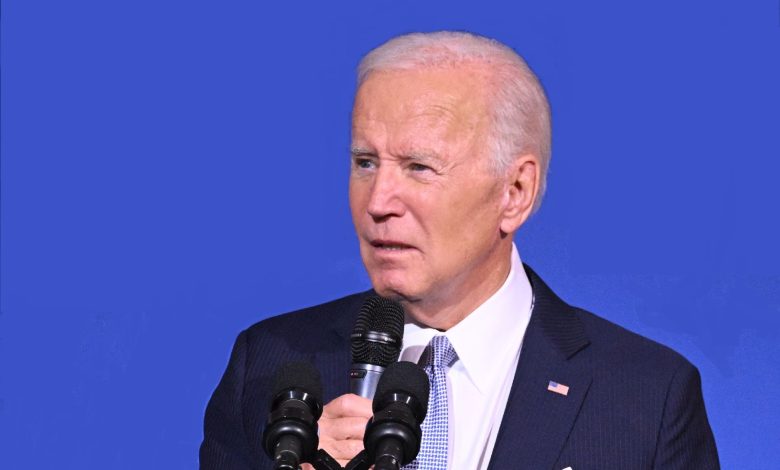
Joe Biden pardoned 37 death row prisoners. And here were his comments about pardoning the most heinous of America’s prisoners:
“Make no mistake: I condemn these murderers, grieve for the victims of their despicable acts, and ache for all the families who have suffered unimaginable and irreparable loss,” Biden’s statement said. “But guided by my conscience and my experience as a public defender, chairman of the Senate Judiciary Committee, vice president, and now president, I am more convinced than ever that we must stop the use of the death penalty at the federal level.”
President-elect spokesman, Steven Cheung said on behave of Trump:
“These are among the worst killers in the world and this abhorrent decision by Joe Biden is a slap in the face to the victims, their families, and their loved ones. President Trump stands for the rule of law, which will return when he is back in the White House after he was elected with a massive mandate from the American people.”
While America debates the death penalty, most would agree that this list of potential pardons should have been way down the list, if not on it at all.
So when I read a headline about shortening the “transition” time, I wholeheartedly agreed; particularly in light of what’s happening currently. The prolonged lame-duck phase has outlived its usefulness, and in its current form, it’s a breeding ground for mischief. There are serious issues that need to be addressed, and Joe Biden is in no condition to do so. But even if he were, is it his job?
In most places in the world, after the election ends, the new party takes over then and there. But not here.
Why? Guy Ciarrocchi wrote:
The world has changed. Life has changed. Politics has changed. It is time to change the 20th Amendment of our Constitution. January 20th is too long to wait for a new president. In accordance with the 20th Amendment to the Constitution, President-elect Donald Trump will take office at noon on January 20, 2025. His successor will take office at noon January 20, 2029.
From President George Washington up through President Franklin Roosevelt’s first term, presidents took office on March 4th. That protracted time period from Election Day to the Inauguration was necessary given the limited ability to travel, communicate, and transact business. It took weeks to conduct basic business well into the 19th Century. Improvements in modern transportation and communications, and the increasingly vital role of the president and of the United States in the world, helped motivate the change from March 4th to January 20th, starting with FDR’s second inauguration in 1937. The change to January 20th made sense back then.
But it is not 1937 anymore. Now, information moves in seconds. A new president can travel and arrive at the White House within hours. With Election Day on the first Tuesday after the first Monday in November, presidential transitions run from 73 to 79 days. That is too long.
Ciarrocchi goes on to explain why America should not allow Biden any more time:
Our current situation involves an outgoing President Joe Biden, who is of advanced age and limited abilities, along with a crisis at the United States border and major global tensions — from Ukraine to Israel, from Syria to the South China Sea. Throw in the drones over the skies of New Jersey and the dangers of a protracted transition become clear. America and Americans are at risk.
The White House’s behavior since November 5th has been troubling at best.
Since Election Day, Biden has advised federal workers that they do not have to return to work in-person; sent billions of dollars more to Ukraine; pledged up to a billion in aid to Syria; shrugged at the plight of Americans rendered homeless by a natural disaster in western North Carolina; withdrew his temporary facade of “securing the border,” issued solely to help Vice President Kamala Harris’ election bid (the border is as porous as ever); stayed silent about antisemitic demonstrations on college campuses; ignored the SUV-sized drones flying over New Jersey; traveled to Africa to pledge billions of American dollars — then fell asleep at a meeting of leaders; and, last but certainly not least, pardoned his own son — while he allegedly contemplates granting dozens of other such favors before leaving office.
Well said. If you think Biden’s behaviors were bizarre when he shook hands with invisible people multiple times or his unintelligible speeches were a sign, then take a look at his pardons. It’s like watching Biden try to microwave a salad. The man has a black belt in bad decisions.
A look back at the history of the transition period:
CNN provides a very biased look at transitions, but they do highlight the reasons behind the 20th Amendment:
The election of 1860 provoked a serious challenge to presidential transition. In November, Lincoln won sufficient votes in the Electoral College to beat three challengers and secure a term as president. One month later, South Carolina gathered a statewide convention and unanimously voted to secede from the Union. Soon thereafter, six more southern states followed suit.
Lame duck President Buchanan poorly managed the developing crisis. He announced himself against southern secession, yet he also believed the government powerless to prevent the action. Instead, Buchanan looked to Congress for a solution. A gathering of “old gentlemen” in Washington, DC, yielded a series of appeasement measures, known as the Crittenden Compromise, which aimed to protect slavery by constitutional provision.
But President-elect Lincoln wisely refused to accept any compromise emanating from the unpopular Buchanan administration. On Inauguration Day, Lincoln called on Buchanan at the White House, and the two men rode together in an open carriage to the Capitol. Despite a conciliatory inaugural address, war erupted when Confederate forces fired on Fort Sumter in April 1861.
The new Republican Congress was furious with Buchanan’s actions during the lame duck period. They took away the franking privilege for ex-presidents (thus requiring them to affix their own postage) – and even declined to pay for Buchanan’s official portrait.
Buchanan defended his actions on the “eve of rebellion” in what historians consider the first presidential memoir, but he failed to rehabilitate his reputation. For his inaction as the Union fell apart around him, he is routinely ranked the worst president in American history.
But it was the next transition that caused enough of a stir for Congress to decide on the 20th Amendment:
By 1932, the Great Depression had plunged the American economy to new lows. Confidence had been lost in the banking system, farmers could find no market for their crops and unemployment reached nearly 25%.
In November, Roosevelt’s promise of a government-sponsored New Deal handily defeated Hoover’s campaign for cooperative voluntarism among private individuals. The day after Election Day, at 9:34 p.m., Hoover begrudgingly conceded by telegram, writing: “In the common purpose of all of us, I shall dedicate myself to every possible helpful effort.”
But, in reality, Hoover did everything in his power to stand in the way of Roosevelt’s New Deal. In effect, Hoover wanted Roosevelt to renounce portions of the New Deal, like his public works programs, before taking office. In turn, Roosevelt refused to collaborate in any way with the outgoing president.
In the meantime, the effects of the Great Depression only worsened. On Inauguration Day, Hoover and Roosevelt shared a tense ride from the White House to the Capitol, with Roosevelt making small talk about the impressive preparations along the parade route.
Mercifully, the extended lame-duck period, designed for an era when Americans traveled by horse or sail, was nearing its end. In 1933, Congress belatedly passed legislation – first proposed by Sen. George Norris of Nebraska in 1923 – that eventually became the 20th Amendment to the US Constitution. Among other things, the “lame duck amendment” moved forward the expiration of an outgoing president’s term from March 4 to January 20 at noon.
Why are we waiting so long to transition a presidency? If anybody triggered the need to stop this, it’s Democrats.
Democrats lit the fuse on this during the 2016 campaign when Trump said he would save Carrier from leaving America. President-elect Trump didn’t wait until inauguration day to make good on that promise after sounding defeating Cankles Clinton. De facto President Trump started saving jobs before most people were finished digesting Thanksgiving dinner. Obama took this as a personal affront, and we all know how the remainder of his “smooth transition” worked out.
Biden is following suit with his lame-duck antics. The contrast between Trump’s stepping down and Biden’s couldn’t be sharper.
As Ciarrocchi explains:
Obviously, my call for revising the 20th Amendment to shorten the transition period would not change anything today. We will have to wait for January 20th this time around. But the events of the last 40 days show why this change must be made going forward. The world is a dangerous place; our economy is enormous and fragile; and the impact that a president makes, both domestically and overseas, is more obvious than ever.
The outgoing president should not have up to 79 days to spend our money on his remaining “pet projects” or to advance his pet ideology; nor should he be granted 79 days to tie the hands of his successor to force compliance with bad laws or executive orders, so that the new president has to spend the first few weeks of his tenure untying these knots.
The outgoing president should not get 79 days to employ taxpayer-funded strategists and attorneys preparing hundreds of pardons for his family, friends, and allies.
And looked at from the other side of the ledger, the incoming president does not need 79 days to pick key staff, cabinet secretaries or set priorities. These are vital tasks, of course, and some time is required, but 79 days is not a magic number.
How much time is really needed?
A couple of weeks should suffice. If you’re running for president, you’d better have your core team ready to go before the election results are in. That’s what President-elect Trump did. He won with the team he’s bringing, for the most part. He used his own funds for the transition.
Clearly, the prolonged transition period happening now isn’t just unnecessary; it’s dangerous. It provides too much runway for mischief-makers like Biden. And if you’re unsettled by his lame-duck decisions so far, buckle up. The real show may be yet to come when his next pardon list drops.



